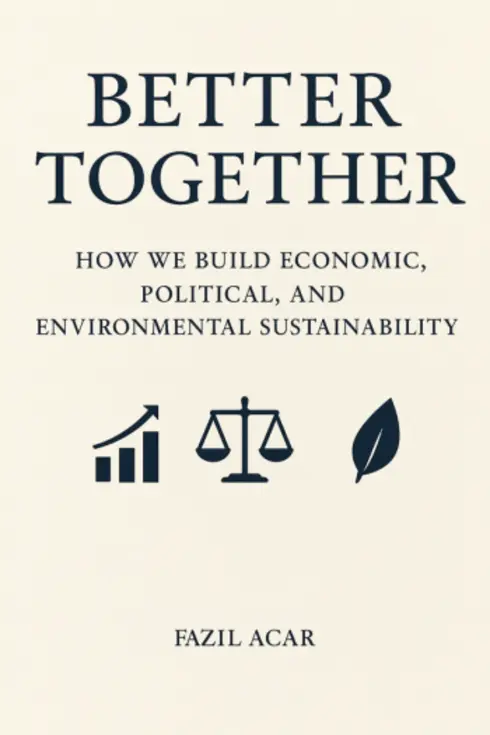
Better Together: How We Build Economic, Political, And Environmental Sustainability
No ratings
Fazil Acar, University of Leeds
Copyright Year:
Publisher: University of Leeds Open Books
Language: English
Formats Available
Conditions of Use
![]() Attribution-NonCommercial-ShareAlike
Attribution-NonCommercial-ShareAlike
CC BY-NC-SA
Table of Contents
- Preface
- From Magna Carta to Modern Growth: The Journey of Democratic and Economic Progress
- Understanding the Bigger Picture: Macroeconomic Performance and the Well-Being of Society
- Labor Force, Employment, Unemployment
- Money, Capital Market, Exchange Rate, Financialization, Central Banking, Inflation, Monetary Policies
- Bridging Borders: The Interplay of International Trade and Global Relations
- Sustainability
About the Book
This book explores how economic, political and environmental sustainability can be strengthened when individuals, institutions and societies work together. Part I traces the story of human progress, showing how freedom, innovation and shared prosperity have evolved side by side. Parts II and III examine how national economies and labour markets shape well-being, emphasising the importance of quality work, high-value production and fair opportunities.
Part IV turns to money, finance and macro-economic policy, explaining how monetary systems, central banking and exchange-rate dynamics affect stability and equality. Part V extends this to global trade and investment, illustrating how economic interdependence requires political cooperation.
Finally, Part VI focuses on sustainability itself, demonstrating why markets alone cannot safeguard the environment or social cohesion. Drawing on behavioural economics, institutional design and active citizenship, the book shows how integrated approaches can meet today’s most pressing challenges.
Blending historical insight, economic theory and real-world examples, Better Together argues that we are strongest when we align our economic choices, political systems and environmental responsibilities. It offers an accessible and practical guide for students, policymakers and citizens seeking to build resilient, fair and sustainable societies.
About the Contributors
Author
Fazil Acar, University of Leeds
